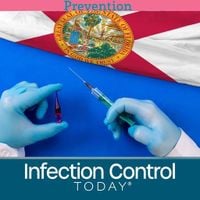Florida has thrust itself into the national spotlight with a bold—and controversial—decision: to eliminate all vaccine mandates, including those required for children to attend school. Announced on September 3, 2025, by Republican Governor Ron DeSantis and State Surgeon General Joseph Ladapo, this move makes Florida the first state in the nation to attempt a complete rollback of immunization requirements. The announcement, made at an event outside Tampa, has drawn both fierce praise and deep concern, igniting a heated debate that stretches far beyond the Sunshine State’s borders.
During the announcement, Ladapo minced no words in his condemnation of vaccine mandates. Calling them "immoral," he declared, "every last one drips with disdain and slavery." Ladapo, a Harvard-educated physician appointed by DeSantis in 2021, went on to say, "Your body is a gift from God. What you put into your body is because of your relationship with your body and your God. I don’t have that right. Government does not have that right." According to Infection Control Today, Ladapo’s comments reflect a growing sentiment among vaccine skeptics who argue that such mandates violate personal freedoms and parental rights.
Florida’s current vaccine requirements, as outlined by its health department, include immunizations against chickenpox, measles, polio, and several other diseases for children attending public schools and child care facilities. The state already offers both religious and medical exemptions. However, the new policy aims to abolish all such requirements, pending legislative action from Florida’s Republican-controlled legislature. Ladapo emphasized, "Lawmakers are going to have to make decisions. That’s the way that this becomes possible. People are going to have to make a decision, people are going to have to choose a side." He added, "The state department of health, in partnership with the governor’s office, is going to be working to end all vaccine mandates in Florida law. All of them."
Public health and legal experts have sounded the alarm about the potential consequences of this sweeping change. James Hodge, a professor at Arizona State University’s Sandra Day O’Connor College of Law and director of the Center for Public Health Law and Policy, told Infection Control Today, "These vaccine mandates have been in place for decades now, designed to make sure we’re providing the safest environments not just for students, but for the teachers and staff as well. These things flat-out work to limit greatly the spread of disease." Hodge further explained that vaccine mandates for public schools have long been upheld by courts and are not a violation of personal rights: "A mandate is simply there to say, as a condition of you attending school or your children attending school, you will have them vaccinated for these specific conditions. That is not forcing anybody to get vaccinated. If you don’t want your kids in that environment, then you may home-school them, you may [use] a religious exemption, which Florida recognizes."
Lynn Nelson, the president of the National Association of School Nurses, underscored the broader public health implications. "When we have outbreaks in schools, those children go home to their families. That’s when we get infants with measles, or elderly people with pertussis that puts them in the hospital," Nelson warned. She described Florida’s policy push as "a doorway to a public health crisis that is 100% preventable." Nelson also noted the practical impact on vaccination rates: "If vaccines aren’t required for school, more families will simply not get vaccinated because parents forget, are busy, or have trouble getting their children to a doctor or clinic. Potentially, access will be impacted and it will be even harder for parents who want those vaccines to get them."
Infection preventionists are especially concerned about the fallout from Florida’s decision. Heather Stoltzfus, research nurse program manager for Johns Hopkins Office of Population Health, told Infection Control Today, "Removing vaccine mandates dismantles one of our most effective protections, not only for children but for society as a whole." She likened vaccine requirements to other public safety measures: "Public health has always relied on guardrails, like seat belts in cars or helmets on bikes, to keep individuals and communities safe." Isis Lamphier, another infection prevention expert based in Florida, pointed out the state’s unique vulnerability due to its high levels of tourism: "Vaccines are especially important in Florida due to our high tourism. In Florida, many of us live in large cities with many tourists, and these vaccines are critical for preventing vaccine-preventable diseases."
The American Academy of Pediatrics was quick to voice its opposition. President Susan J. Kressly wrote, "We are concerned that today’s announcement by Gov. DeSantis will put children in Florida public schools at higher risk for getting sick." Mary Beth Miotto, a Boston-based pediatrician, echoed these concerns, stating, "Parents deserve to know that their children's schools are not contributing to their risk of severe infections that have historically caused children to die. I stand with Florida parents and children and agree with the American Academy of Pediatrics that we need to keep schools healthy by keeping children immunized."
The policy shift is set against a backdrop of growing anti-vaccine sentiment and increasing political influence over public health decisions. President Donald Trump’s appointment of Robert F. Kennedy Jr., a well-known vaccine skeptic, as Secretary of Health and Human Services has only intensified the debate. Kennedy’s early actions included dismissing all 17 experts from the Advisory Committee on Immunization Practices (ACIP)—the panel that helps set the childhood vaccine schedule used by most states—and replacing them with new members, several of whom have expressed anti-vaccine views. The U.S. Centers for Disease Control and Prevention has also experienced turmoil, with its head fired and other top experts departing amid disputes over vaccine policy.
Infection prevention professionals now face a daunting new reality. Without the protective barrier of mandatory childhood vaccinations, they anticipate an increased risk of outbreaks from diseases like measles, polio, or varicella. Heather Stoltzfus summed up the professional consensus: "Reversing decades of progress in disease prevention places us all at greater risk, and it is a step backward for the health and safety of our communities." Jill Holdsworth, an infection preventionist from Atlanta, was blunt in her assessment: "This is a poorly thought-out move by those who are not experts." Infection preventionists expect to see rising demands for contact tracing, outbreak investigations, and community education—efforts that will require significant resources and coordination to manage.
Looking ahead, Florida’s decision could have ripple effects across the country. As James Hodge observed, "Florida’s massive population and societal influence could mean that other states, especially in the Southeast, pick up on this and start to run with it as well. I think Florida is going to deal with so many substantial legal challenges that I think more states will be watching this environment and trying to assess, ‘do we really want to get into that?’" The coming months will likely see legal battles, legislative debates, and ongoing public health campaigns as Florida’s new policy is put to the test.
Florida’s gamble has set the stage for a national reckoning on the role of vaccines in public life—one that will test the resilience of public health systems, the resolve of infection preventionists, and the willingness of communities to protect their most vulnerable members.




